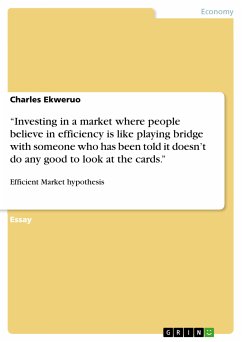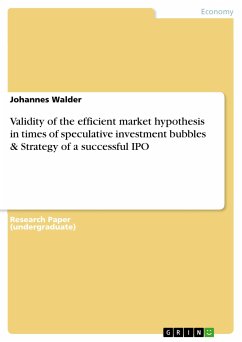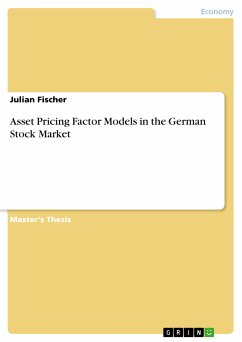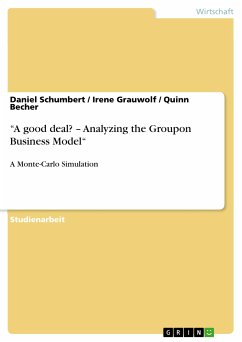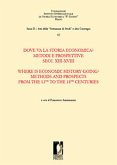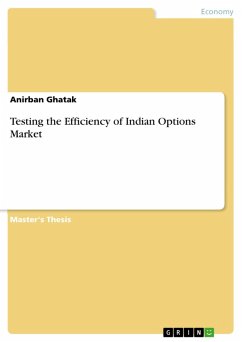Essay from the year 2011 in the subject Business economics - Investment and Finance, grade: 1, University of Bradford (School of Management-Business School), course: Capital Market Investment And Finance, language: English, abstract: “In an efficient market, security (example shares) prices rationally reflect available information” (Arnold 2005, p.684). The efficient market hypothesis (EMH) refers to share price movement with respect to available information and thus no trader will be presented with an opportunity of making supernormal profits (except by chance), therefore their profits on a share will reflect the riskiness associated with that shares (Pike and Neal 2009). However, “detailed investigations using advanced econometric techniques, larger data sets, increasingly powerful computing ability, and alternative theoretical models have in the last few years revealed a range of anomalies when the unpredictability-of -returns hypothesis is tested. Financial markets are often predictable to some extent, but the crucial question is whether this predictability can be exploited to make excess profits from trading in the markets‖ (Mills 1992, as cited by Coutts, 2000, p.579). Warren Buffet, known as one of the most successful investors in history, is convinced that stock markets are inefficient. ''I think it's fascinating how the ruling orthodoxy can cause a lot of people to think the earth is flat. Investing in a market where people believe in efficiency is like playing bridge with someone who has been told it doesn't do any good to look at the cards'' (Buffet, 1984, as cited by Davis, 1990, p.4). Buffet is referring to the fact that market price movements are often caused by emotional purchases and sales of stocks, resulting to an inefficient market, in other words, irrational market prices (Buffet, 1984). However, there are financial economists who see it the other way round. They agree with the “Efficient Market Hypothesis” which states that security prices rationally reflect only available information (Arnold, 2005, p. 684) (see fig 1) therefore inhibiting the possibility of beating the market. According to this theory, there does not exist under- or overvalued shares, only true and fair values. It is difficult to say which side is right and which side is wrong, as both are based on logical reasoning and transparent facts. This paper will therefore, evaluate both concepts using different theories and ideas from those for and those against the EMH in order to find a conclusion which is reasonable and flexible enough to support a constructive point of view (based on pragmatism) and to better understand if Buffet‟s statement is true or false or maybe both.
